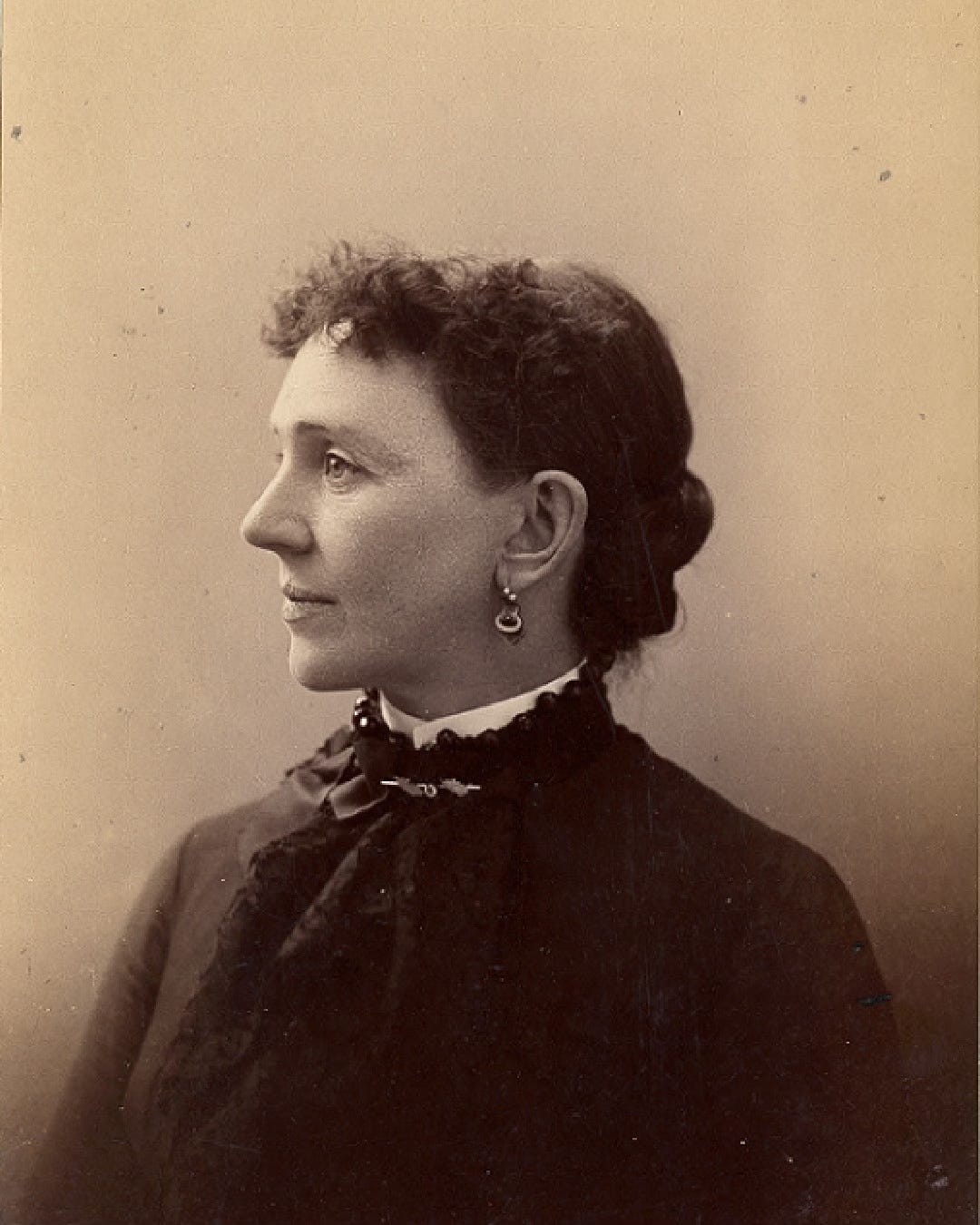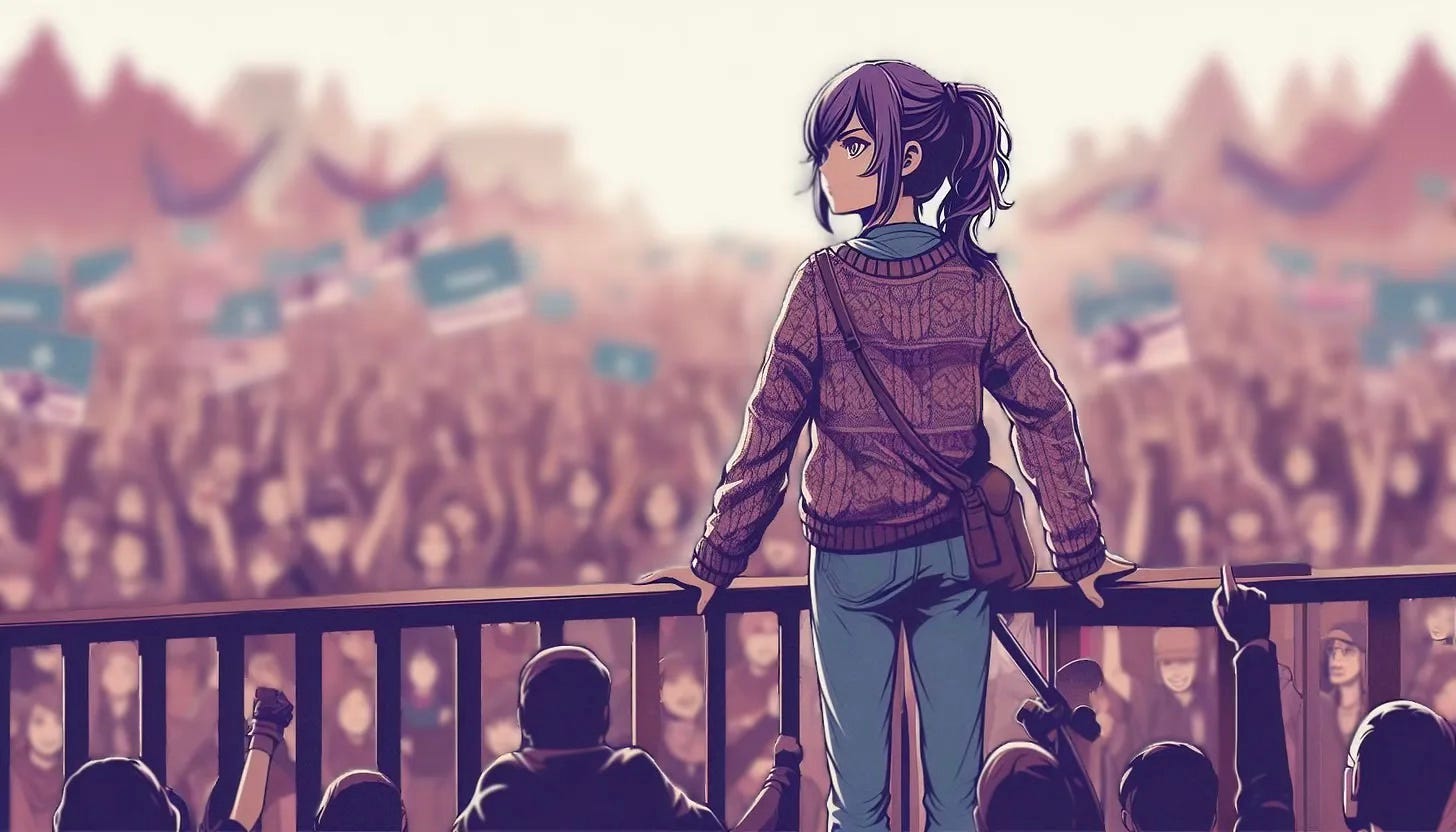Union Is Community; Community Is Power
We celebrate 'union' in marriage. We revere 'the Union' that fought against secession. Yet, when workers demand a union for fair wages, they face resistance. It’s time to reclaim the power of unions.
I don’t usually watch award shows, but I had to tune in when I saw Jane Fonda was being honored with a Lifetime Achievement Award from the Screen Actors Guild (SAG). A longtime activist, I figured the current political climate would be the perfect setup for Fonda. I wasn’t wrong – but it was not the speech I expected.
“I’m a big believer in unions. They have our backs. They bring us into community, and they give us power,” roared the 87-year-old Fonda, resplendent with a mane of silver hair. “Community means power, and this is really important right now when workers power is being attacked and community is being weakened."
Unions. They rarely get mentioned, and are hardly top of mind for most. But they have been for me this last year – which is how long I have been researching Leonora Barry, an ancestral relative who was a national labor activist.
Widowed at age 31 with small children, Leonora was forced into the labor market. The conditions and pay were appalling. Her fortunes (and ours) changed when she joined the Knights of Labor (KoL).

I hadn’t heard of the KoL before last year. Different from unions which were exclusive to skilled tradesmen (male and usually Protestant) the KoL was a progressive social movement started by New Jersey native Uriah Stephens.1
Stephens came from a wealthy family, and was studying to be a Baptist minister when the real estate bubble of the 1830s burst.2 His family lost its wealth and Stephens was forced into an apprenticeship.
Working for a tailor, Stephens toiled without pay in exchange for board and training. Most apprenticeships were for seven years. The days were long and so was his memory.
Like the threat of artificial intelligence today, people with manual skills were replaced by machines. Competition for jobs was fierce. Newly freed slaves and an influx of immigrants made the situation worse, and employers were eager to exploit the desperation.
Stephens joined a garment workers union in the early 1860s. But as a utopian idealist and antebellum reformer, Stephens envisioned an assembly for social good; an inclusive community of diverse laborers, skilled and unskilled, of all faiths and ethnicities.
In 1869, with six others, Stephens formed The Noble and Holy Order of the Knights of Labor. With rituals akin to the Masons, initially it was run like a secret club.
The word holy suggests a religion, but the KoL was non-sectarian. Stephens perhaps chose the word to mean “exalted” and worthy of devotion due to its “goodness” and “righteousness.” Unlike any other fraternity, the KoL allowed women.
As a seamstress in a hosiery mill in Amsterdam, NY, Leonora joined its local assembly. She carefully recorded the conditions found in nearby factories and mills – the wages and hours worked by men, women, and children; the cost of goods; its final sales price.
She presented her findings at the KoL’s 1886 convention – and was promptly asked to join as the National Investigator for the Women’s Department. Leonora held that position for the next three years, surfacing ghastly abuses. In her 1888 report she detailed sexual abuse by men with power, and demanded that the KoL work to criminalize these actions.3 Her findings and subsequent lobbying of federal and state governments resulted in a heightened awareness of abuses. Her notable success was seeing Pennsylvania pass its first factory inspection act in 1889 - a bill she essentially wrote.4
But whenever labor organizes, money is quick to find ways to subvert it. Like every labor movement that has gained momentum, the KoL faced backlash. In the southern assemblies there was unrest because blacks were allowed. In Chicago, during a strike for an 8-hour work day, suspicious violence broke out. It’s murky over who started it.5 KoL membership plummeted.
Unions, actually any civic collective, face similar forces—corporate interests, political maneuvering, suspicious violence fosters public skepticism.
My own experience with unions is meager. I never had union protections for any of my jobs, although God knows I might have benefited from them. A family newspaper I worked for desperately wanted to remain union free - by treating its employees like family. That ended when Gannett bought the papers.
At-will employment affords zero protections from firing and a paucity of vacation days. I went years without employment reviews – even in large companies. We are told that by lowering the risk of hiring – employers would be willing to hire. The reality is, they lay you off with about as much analysis as Elon Musk’s DOGE.
Dad was fervently against unions. I have no idea why. He always said, “two heads are greater than one genius,” so he knew the value of teamwork. His only tenure in a big company was right out of college in a dead-end job. He started his own business shortly after that and never had more than a dozen or so workers. So I have no idea what he might have been afraid of.
On the other hand, my husband’s family was all union workers: teachers, electricians, teamsters, and corrections. Unlike my experiences, they had a ton of protections - and certainly more vacation days. And now they all have pensions.
For all that is achieved by unions: fair wages, safer working conditions, shorter hours and work weeks, many seem programmed to look down on them. Anti-union sentiment isn’t new. Corporations have spent decades portraying unions as corrupt or unnecessary. And deeply embedded in American culture is the myth of ‘rugged individualism’—the idea that success is personal, not collective.
And going it alone has not helped as wages have stagnated. Adjusted for inflation, men’s wages are lower than in 19696 —despite massive increases in productivity. Meanwhile, union membership has plummeted, leaving workers with less bargaining power than ever.
It's ironic that the word union is ever considered divisive. We celebrate 'union' in marriage. We revere 'the Union' that fought against secession. But when workers demand a union for fair wages, the same people who would benefit often side with capital instead."
The good news is, In the last couple years, sentiment for unions has soared,7 reaching heights not seen in 50 years. Still, membership in unions is at one of its lowest levels at just under 10%.8
I had fully expected Fonda to rail against the politics of today. But instead she went in a different direction - perhaps understanding how divisive that would be. Instead she spoke of the power of community, and urged us to band together to take care of each other. “A whole lot of people are going to be really hurt by what is happening.”
Humanity. And giving a damn about others.
A few years after leaving the KoL, Leonora gave a speech asking Is Labor Dignified? She couldn’t help but notice that “whether in poetry or verse” labor is referred to as “noble, holy and dignified.” Yet, in practice, employers look down on laborers as they are “considered but a commodity” to be bought and sold.9
“Oh, if we would only learn to love humanity more and money less,” she lamented.
That might be a hard sell particularly to people who ascribe value only in monetary terms. And while capital may believe that it holds all the cards because artificial intelligence can do away with labor – it cannot do without consumers.
As Fonda says, there is power in being part of a community. By unifying, not just for jobs, but at schools, in civic organizations, in local politics, we can decide that all of us be given the dignity we deserve.
What I Am Reading
I had The Daughters of Yalta next up to read, but my library intervened. I’d been waiting for Barbara Kingsolver’s Unsheltered for almost two-months. It’s the story of two families living in the same house – 150 years apart. Sorta feels like what I am trying to do with Leonora - tell her story 100 years after she lived, interspersed with modern day thoughts and observations. Excited to see what parallels I can draw from.
A Small Request
I really appreciate you spending your time reading my essays. And I treasure the private messages you send me. If I could ask that you also please consider hitting the share button and leave a comment below, I’d be so grateful. It’s how I reach new readers. Thank you again for your continued support!!
https://www.britannica.com/biography/Uriah-Smith-Stephens
https://muse.jhu.edu/article/850881
https://www.lib.cua.edu/wordpress/newsevents/20413/
https://www.bls.gov/news.release/pdf/union2.pdf







When I was a girl in Georgia, Baptist preachers would rail against unions in the pulpit, calling unions the work of the devil. I kid you not. I assume they didn't want people to pay union dues instead of tithes -- and that they wanted to maintain influence over their members. People who are comfortable financially tend to go to church less.
In a similar vein, I had a friend -- still in Georgia -- in my mid-20's who drove a truck for a national food distributor. When his local group consider unionizing, the big wigs flew them all to Atlanta, fed them some steaks, told them they were all family and didn't need a union. The union lost the vote. Four years later, my friend hurt his back and was summarily fired. Georgia is a misnamed right-to-work state, and he had no recourse. That union he didn't vote for would have helped him.
And last, a different friend worked for the AFL-CIO as a secretary for a few years before she was diagnosed with MLS. Twenty years later, she still has a pension and health insurance, despite working for the union for less than three years.
U.S. unions made working conditions better the world over. Unions change people's lives, and I love that you're giving us examples of how they came to being. One person CAN make a difference, something we very much need reminding of right now.
How exciting to have found that female labor union relative! ( I am fighting a cold, so my thinking is not very clear. I did enjoy reading this, but it’s hard for me to make a super intelligent comment at this time.)